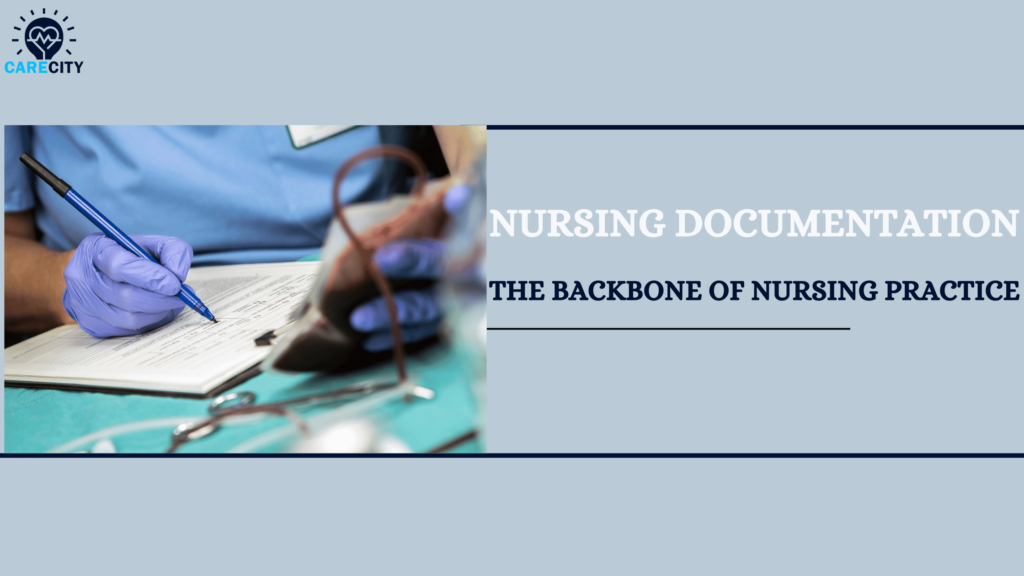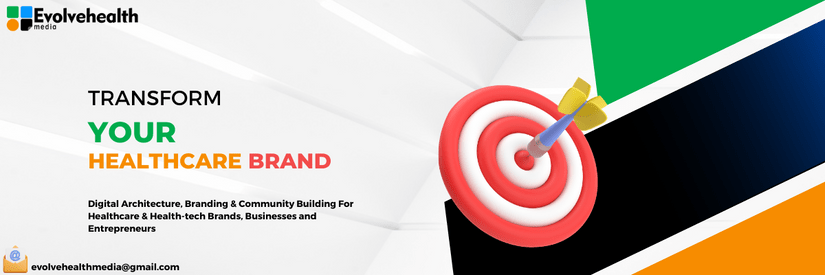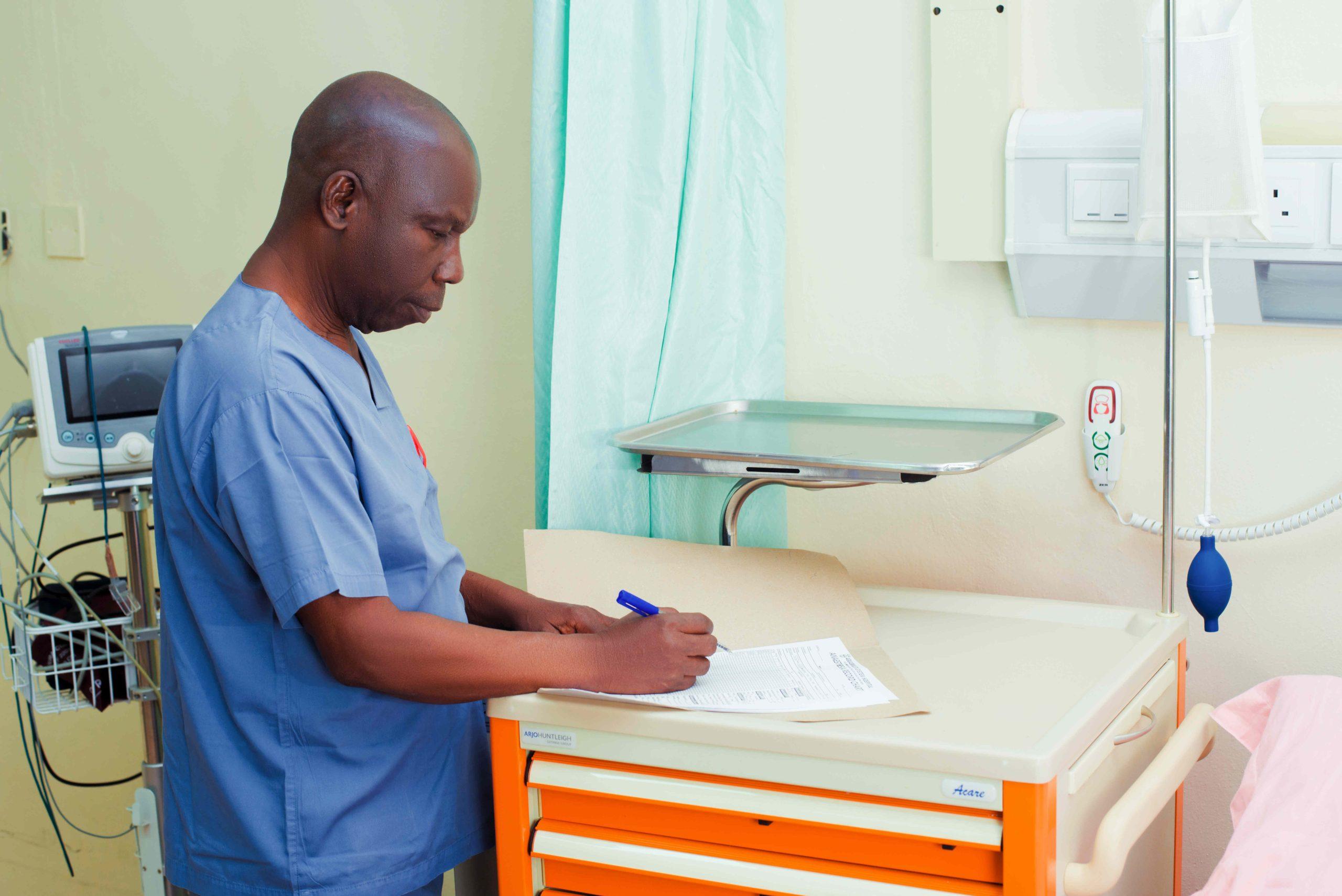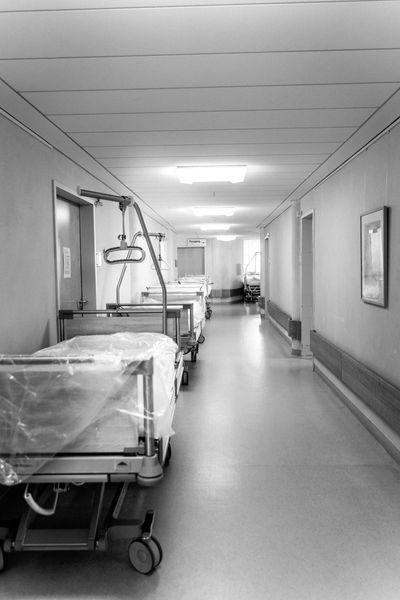
Nursing documentation is an integral aspect of Nursing care.
It is crucial as it directly impacts the quality of nursing services rendered. Paying attention to this aspect is essential as it can have severe consequences for the patient or client, healthcare professionals, and the institution. Neglecting this aspect can result in adverse outcomes, so prioritising it is imperative.
Regarding nursing documentation, a set of crucial principles and practices must be followed to avoid any potential malpractice. Adhering to these guidelines ensures positive outcomes and patients receive the best possible care.
They are grouped into two:
The Principles of Writing
The Principles of Professionalism
1. THE PRINCIPLES OF WRITING
Documentation can be executed in two ways: manually or electronically. Documenting requires a certain level of expertise which can be mastered over time by utilising basic writing skills. It involves creating a detailed record of information, whether it’s for business or personal purposes. The documentation process requires a systematic approach to capture all vital details accurately. Additionally, it is essential to maintain consistency in formatting, language, and tone throughout the document to ensure that it is easy to read and follow.
When documenting nursing information, it is essential to follow proper writing guidelines.
This includes:
- The correct usage of punctuation
- Proper structure with an introduction, body, and conclusion
- Accurate use of tenses, appropriate usage of abbreviations, correct usage of different parts of speech such as nouns, pronouns, verbs, adverbs, adjectives, conjunctions, prepositions, and interjections
- Proper spacing between words, attentive listening while writing, and proper formatting with appropriate capitalisation.
These are just a few essential aspects to consider.
All these must be implemented in Nursing documentation to ensure error-free nursing management and smooth communication with other healthcare team members.
The wrong use of a word or words could put the health of patients/clients at risk.
2. THE PRINCIPLES OF PROFESSIONALISM
As a nurse, it is essential to demonstrate professionalism when documenting procedures.
Nursing documentation is not merely jotting down tasks completed during a shift or inputting information into a system.
Instead, it should be crafted with skill, which distinguishes nursing as a profession.
This will be sub-grouped into:
a) Principle of Logic and Intellect
The application of logical reasoning in the process of Nursing documentation brings about excellence and uniqueness reflected in the pattern and style of putting those words together to produce meaningful results, which can help other healthcare team members grasp whatever message it is to be passed across.
When a product is written logically, it will stimulate the same logical understanding in the reader’s mind, including other healthcare team members and anyone who reads the documentation.
Logic and intellect will help to utilise the writing skills acquired and implement them correctly. They can also penetrate the reader’s mind to make them understand better through their imaginations.
b) Principle of Scientific-Inclination
Nursing documentation must be scientific-inclined, as Nursing itself is a science.
Nursing science is outcome-driven and evidence-based; using specific Nursing terminologies is also very suitable. Nursing documentation should be carried out systematically, from one procedure to the other, and not have them all muddled up.
c) The Principle of Clarity and Comprehension
Nursing documentation should be clear enough and easy to understand to prevent confusion, misinterpretation or misunderstanding because someone’s life is on the line here; we can’t choose to be nonchalant and take things with levity.
It is expedient to carry the reader (other Nursing team members, the medical team and anyone who reads the document) along by properly documenting each procedure or intervention.
d) Principle of Specificity
In this area, the Nursing process can help ensure the documentation is specific.
The use of parameters such as Nursing Assessment, Nursing Diagnosis, Nursing Objective, Nursing planning, Nursing Implementation, and Nursing Evaluation will help one know how to categorise and write the basics, having salient points in mind, no need to beat around the bush, not too lengthy, can be short, precise and still be detailed enough to be informative.
e) The Principle of Accuracy
Accuracy means the ability to do something precisely without making mistakes.
To be accurate means to be correct and authentic in every way.
Nursing documentation must be accurate and error-free to produce optimum results, as mistakes can destroy many things.
f) The Principle of Credibility
Nursing documentation must be credible, and other healthcare team members must be able to believe every bit of information reported and recorded; otherwise, the continuity of care will be jeopardised.
In other words, principles are meant to be applied to hit the target and achieve goals; healthcare goals are not just mere or empty; they determine the life or death, the progression or deterioration of a patient or client’s health, so such must never be taken for granted, because what is worth doing at all they say, is worth doing well.
What To Read:
Ignite Innovation In Nursing: Unleashing The Power of Ideas
Factors Contributing To Malpractices In Nursing Documentation | Care City Learning
TIPS FOR IDEAL NURSING DOCUMENTATION
Nursing activities can be overwhelming and burdensome, which can affect Nursing documentation by making it improper, incomplete and incomprehensible.
Still, we have no excuse for malpractice as Nurses because Nursing is a noble profession; doing all that is required of us at all times, irrespective of the unfavourable circumstances surrounding us, is one of those qualities that makes us professionals. Tenacity, doggedness and correctness are our emblems.
Here are some tips to keep us on our toes as far as Nursing documentation is concerned:
- Be present in your present, be physically, mentally, emotionally, psychologically, socially and professionally present while at work; whatever happens outside your workplace is left outside work; once you are at work, ensure that you are stable in all spheres because mental stability is the key to optimum performance.
- Create a must-do-it consciousness in you as Nursing documentation is inevitable and expedient; register it in your mind that no matter how tough it gets, it’s a duty for you as a Nurse to document.
- Always have a note with you to record data that comes in the form of values like blood pressure, pulse, temperature, weight and other routine activities related to physiological values.
- Do not have a mind that you can’t forget; if there’s a need to scribble down some pieces of information ASAP, please do, as the entry of new pieces of information might not be able to let you recollect the old ones even within a few minutes.
- Take mental notes often, which can also help boost your mental capacity.
- Save data or pieces of information on medical devices for easy recollection [if your institution provides. Always ensure you follow policies].
- Make Nursing documentation a deliberate practice, be intentional about it.
- Make use of simple and correct English while writing. You don’t have to stress yourself by racking your brain for vocabulary.
- List out salient points during documentation, as this will help the reader’s comprehension and makes it easier for you too.
- Manage your time well, do whatever has to be done at the right time, and say no to procrastination.
- Have a motto or quote that can push you when you get too tired to do some needful, like documentation. e.g. “What is worth doing at all is worth doing well.”
- Think outside the box, and always remember that what goes around comes around; the consequences of malpractice can be so damning and dooming. e.g. the litigation that might come with these malpractices, is it worth the stress?
- Assess your daily activities as an individual Nurse. Are you doing it really well?
- Self-evaluate your Nursing services; what can you say about your Nursing care?
- Please take note of every correction or comment made about your documentation after handing it over, and take cognisant of them.
- Remember to inscribe your signature [or name or use your own login details in electronic medical records] after each documentation; it’s imperative, and always remember that your signature can determine your next level in the profession. For every document you write, ensure you have done it well.
Conclusion
To summarise, nursing documentation is an essential aspect of healthcare that significantly contributes to ensuring quality patient care.
It serves as a legal record of the patient’s care, which can be used in case of litigation or insurance claims.
Moreover, it helps healthcare providers communicate effectively, ensuring that all care team members are on the same page and working towards the same goals.
In addition, nursing documentation plays a crucial role in evaluating the effectiveness of treatment plans and identifying areas for improvement in patient care. By documenting the patient’s responses to treatment, healthcare providers can assess the effectiveness of the interventions and make adjustments as needed. This can lead to better patient outcomes and improved quality of care.
Finally, accurate and comprehensive nursing documentation is vital in providing safe and effective patient care.
It enables healthcare providers to track the patient’s progress, identify potential issues, and develop appropriate interventions.
Nursing documentation is an integral aspect of Nursing care. Moreover, it ensures that all care team members have access to critical information, which can help prevent errors and improve patient safety. Therefore, Nurses must prioritise nursing documentation.
Internal Brand Ad.

Are you searching for exceptional web development, content management and development, and brand management and development designed specifically for healthcare brands, businesses, organisations, startups and entrepreneurs?
You can end your search now.
Our team of healthcare professionals, tech specialists, industry leaders and creators is ready to elevate your online presence to the next level.
We offer a wide range of services, from creating stunning websites to crafting compelling content and managing your brand.
With our assistance, you can grow your brand, increase sales and achieve your objectives.
Get in touch with us now to discover more about our services and how we can assist you in achieving success.
Go Beyond, Be Limitless with Evolvehealth Media.
Build with us. Find out more…here…






Drop Your Comment